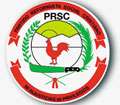Social Christian Reformist Party
Social Christian Reformist Party Partido Reformista Social Cristiano | |
|---|---|
 | |
| Abbreviation | PRSC |
| President | Quique Antún |
| General Secretary | Ramón Rogelio Genao |
| Presidium | Ricardo Espaillat |
| Spokesperson | Máximo Castro |
| Founder | Joaquín Balaguer |
| Founded | July 21, 1984 |
| Headquarters | Santo Domingo |
| Ideology |
Reformism Christian democracy Liberal conservatism Social conservatism Economic liberalism |
| Political position | Centre-right to right-wing |
| International affiliation |
International Democrat Union, Centrist Democrat International |
| Regional affiliation |
ODCA UPLA |
| Colours | Red, green and white |
| Slogan | Ni injusticias, ni privilegios (No injustices, no privileges) |
| Chamber of Deputies[1] |
18 / 190
|
| Senate[1] |
1 / 32
|
| Mayors[1] |
38 / 155 |
| Central American Parliament[1] |
1 / 20 |
| Website | |
|
www | |
The Social Christian Reformist Party (Spanish: Partido Reformista Social Cristiano or PRSC) is a Christian democratic right-wing political party in the Dominican Republic formed by the union of the Partido Reformista (established in 1963 by Joaquín Balaguer who was, at the time, exiled in New York City) and the Partido Revolucionario Social Cristiano. Some of the PRSC's founders and leaders were originally business leaders and Roman Catholics who opposed the communist, socialist, democratic socialist and social democratic tendencies of Juan Bosch, of the PRD and PLD, respectively.
Founders of the Partido Revolucionario Social Cristiano were anti-Trujillistas, among others: Alfonso Moreno Martinez, Mario Read Vittini, Yuyo D'Alessandro, Caonabo Javier Castillo, all of them returning to the Dominican Rep. from political exile. In July 24, 1984 this political party and the Partido Reformista together they merge, and they become in the Partido Refomista Social Cristiano.
At the legislative elections, 16 May 2002, the party won 24.3% of the popular vote and 36 out of 150 seats in the Chamber of Deputies and 2 out of 31 seats in the Senate.
For the presidential election of May 2004, the PRSC chose as its presidential candidate, the civil engineer, Eduardo Estrella. He finished in a distant third place with only 8.7% of the vote.
Following Balaguer's death in 2002, the PRSC declined rapidly. Balaguer was the presidential candidate of the PRSC and its predecessor party in every election from 1966 to 2000 except 1996 when Jacinto Peynado was the candidate, and Balaguer was President from 1966 to 1978 and from 1986 to 1996. The PRSC often also had control of Congress. After the mid-2000s the party has been relegated to being a junior partner of the PRD or PLD; currently it is in alliance with the PRM. In the general elections of 16 May 2006, the party formed together with the Modern Revolutionary Party, and others the Grand National Alliance, that won only 82 out of 183 deputies and 10 out of 32 senators. The Social Christian Reform Party itself won 23 seats in the chamber of deputies and 4 seats in the senate, taking a distant third place compared to the Dominican Liberation Party, which won the election, and the Dominican Revolutionary Party.
For the Presidential Election of May 2008, the PRSC elected as their Candidate : Dominican Municipal League President (and elected but never serving senator from Higuey) Amable Aristy Castro. He came in a distant third place with less than 5% of the vote.
For the legislative elections of May 2010, the party formed with the Dominican Liberation Party a partial alliance in almost all provinces and won 4 senators (1 alone and 3 within the alliance) and 8 deputies (3 alone and 5 within the alliance).
For the 2012 elections, the PRSC remained in alliance with the PLD, and for the first time did not run its own presidential candidate.
The new stage of the Social Christian Reformist Party has been based on the internal and Party Discipline, the democratic induction to adjust its growth based on structural work and expansion of its direct enrollment. They managed to reorganize their management bodies, inserting a large number of young people and women into the management offices that are part of the transcendental decisions of that political party.
They have had strong internal struggles, but they have proven to be an organization that achieves consensus, integration and the unity of the members who follow internal party discipline.
List of Presidents of the Party
- Joaquín Balaguer (1984-2002)
- Quique Antún (2004-2009, 2014-Present)
- Carlos Morales Troncoso (2009-2014)